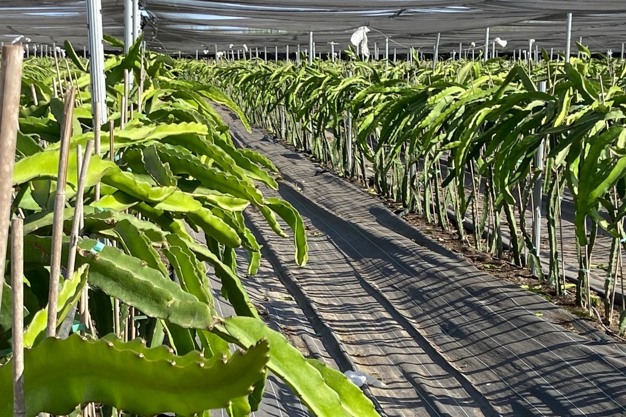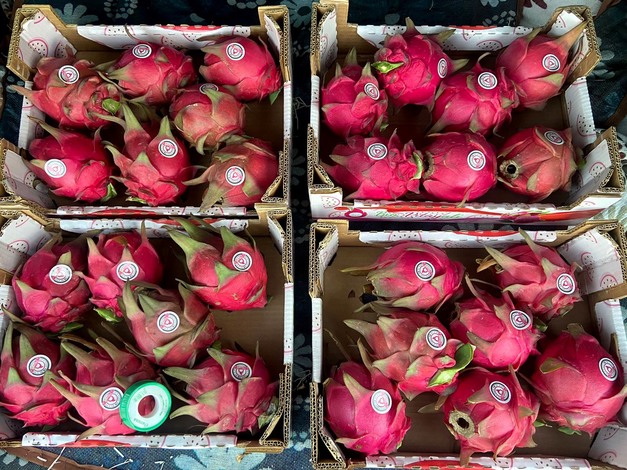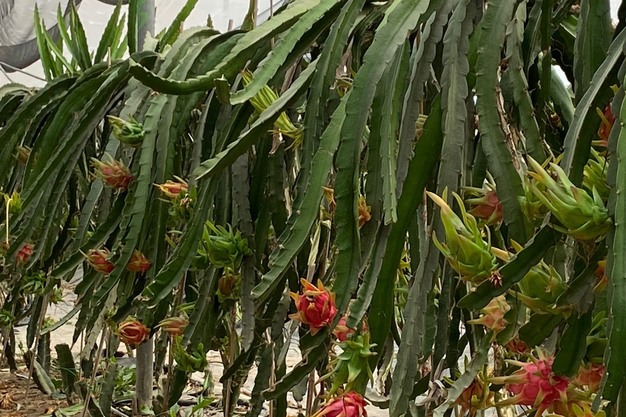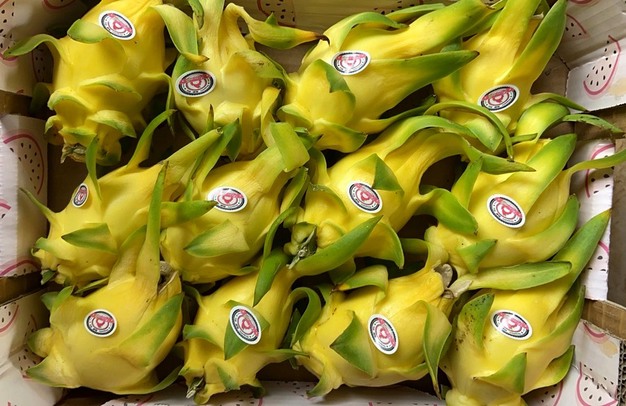Just five years ago, pitaya was largely unknown, but its cultivation has expanded significantly in Spain, with the province of Alicante as one of the regions with the most acreage.

Xu Chen Guoyong started growing this fruit there around seven years ago and was one of the first specialists in the province and is currently one of the largest pitaya growers in Spain.
"At the moment, we have 6 hectares of pitaya in production, taking into account both our open ground crops and greenhouses, and we aim to reach 12 hectares in the near future," says Xu, founder of Bio Pitayali. "I was already familiar with pitaya in China, where I am originally from. Over there it is a very common fruit that is available in every greengrocer and which can be purchased all year round, so it is very widely consumed."
Xu Chen at Fruit Attraction 2024.
"A few years ago, there were not many consumers in Spain who knew about it, and even today there are some who don't know yet what pitaya is; but for this very reason, pitaya has very great potential for growth. If we work on promoting the fruit, it is very possible that tomorrow its consumption will become as normal as that of avocados, oranges or apples, as is already the case in China".

Pitaya is a fruit with good all-around qualities for consumers as well as for producers. "It is very healthy and its consumption is even recommended by doctors, says Xu. "It is also a tropical fruit with a very low water demand, so it can be grown with ease in Alicante, on the shores of the Mediterranean."
"Also, I see that most of the pitaya that has been arriving in Europe is imported. The fruit comes from Asia, where Vietnam and Thailand are its largest producers, or from Latin America, in air shipments that make the product very expensive. The idea of Bio Pitayali is to take advantage of this market opportunity and fill the existing gap in the supply with cheaper fruit, as there's no added cost of air transport, and the product offers much greater freshness and ripeness."
"In fact, especially in the domestic market, the fruit reaches consumers only one day after being harvested, which guarantees its freshness compared to imports."

"So far, 80% of our production this season has been exported to Europe and the other 20% has been delivered to Spanish wholesale markets such as Mercamadrid, Mercabarna, Mercalicante or Mercamurcia. The season will last until November and, so far, the results have been very good. The demand for pitaya from our clients has remained higher than our production at all times, which is proof of this market's potential."

 For more information:
For more information:
Xu Chen Guoyong
Bio Pitayali
La Marina P1, 154
03293 Elche, Alicante, Spain
[email protected]
www.pitayali.es










